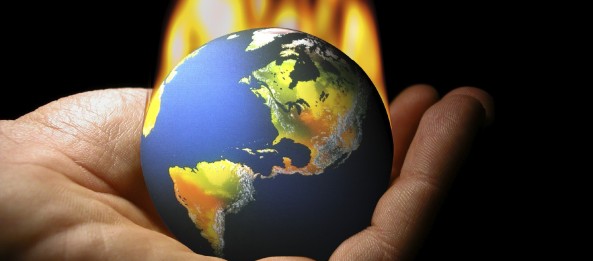The first ever European climate risk assessment carried out by the European Environment Agency (EEA) has concluded that Europe is unprepared for what lies in store.
The year 2023 was the warmest year ever. The global average temperature during 2023 has surpassed the threshold of 1.5 degrees Celsius set in the Paris agreement at the 2015 Climate Summit.
Europe is the fastest warming continent. The situation in Southern Europe is even worse. It will face considerably reduced rainfall and more severe droughts.
At this point, none of this is however news. It is already the present. The future may, however, be even worse than that.
In a 425-page report we are told that climate change is a multiplier of risks: existing risks will be aggravated. Climate risks are growing much faster than our preparedness. We are being extremely slow in developing and implementing climate change adaptation strategies.
36 major climate risks for Europe have been identified. They are grouped in five clusters, namely, ecosystems, food, health, infrastructure, and the economy/finance.
The key findings of this first European climate risk assessment, which I quote verbatim from the EEA report, are:
“Ecosystems: climate change is one of the main drivers of biodiversity loss and ecosystem degradation in Europe. Among climate risks related to ecosystems, risks to coastal and marine ecosystems have the highest severity in the current period as well as the greatest urgency to act.
Food: Europe faces multiple challenges to food production and food security, including reducing its environmental impact. Crop production is already facing substantial climate risks in Europe as a whole, and critical risk levels in Southern Europe.
Health: climate change poses major risks to human health systems. Risks related to heat are already at critical levels in southern Europe.
Infrastructure: extreme weather events are posing increasing risks to the built environment and infrastructure in Europe, and the services they provide. Such events can disrupt essential services, including energy supply, water supply and transport networks.
Economy and finance: the European financial system faces critical risks from the impacts of climate change, both within Europe and abroad. Serious sector- and region-specific risks to Europe could catalyse a systemic financial shock.” (page 264: para 18.6 of the report)
This is a wakeup call of the highest order. The European continent is unprepared for the growing extremes of climate. Yet senior politicians at an EU level are more interested in sabotaging specific initiatives which seek to bridge the gap in climate change preparedness. The recent debate (and voting patterns) on the regulatory framework for the restoration of nature is a case in point.
The recent Dutch farmers’ revolt which has shaken the Netherlands’ body politic has its origin in the difficulties encountered in implementing the Nitrates Directive. It has however spread to other regions, motivated by the industrial agricultural lobby’s determination to sabotage the EU Green Deal.
In Germany the centre-right CDU-CSU have just launched their joint EU Parliament electoral manifesto with a pledge to reverse the controversial phase-out of the internal combustion engine. A definite commitment to water-down the EU Green Deal. The CDU-CSU leading candidate is the same person piloting the EU Green Deal, Ursula von der Leyen.
With these attitudes it is inevitable that our preparedness for the climate risks we face will get even worse. This is the future we face. It keeps getting worse until those that matter come to their senses.
published in The Malta Independent on Sunday : 17 March 2024


